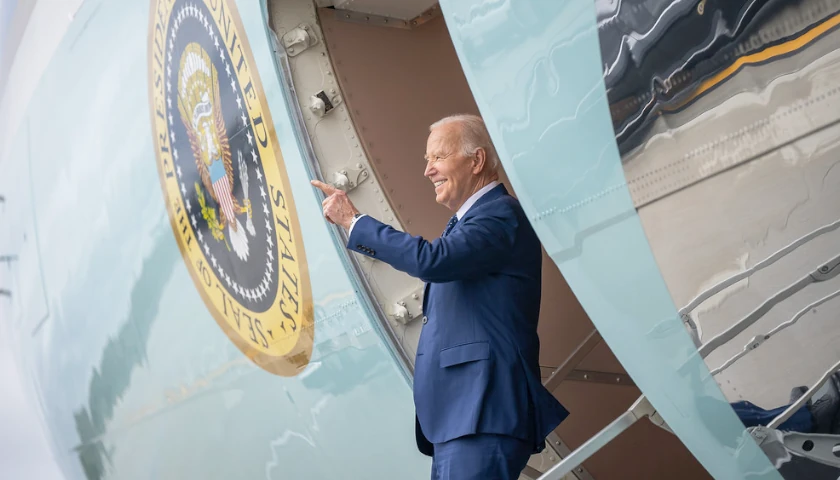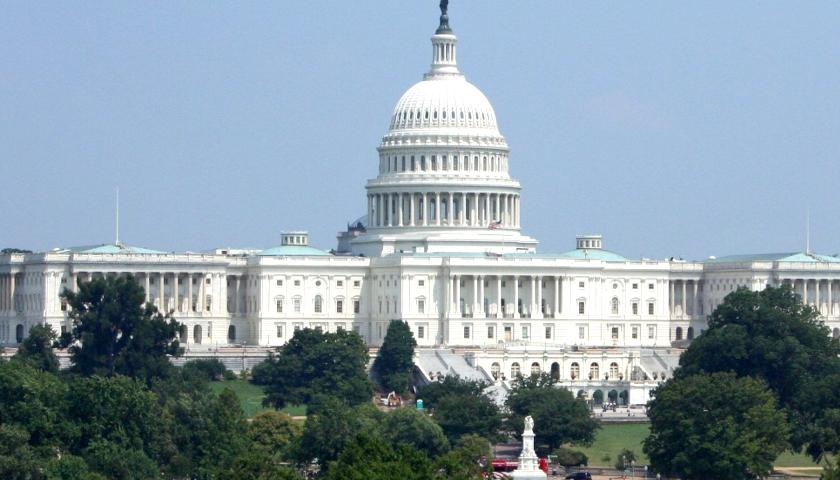by Susan Crabtree
Amid the Democrats’ chaotic meltdown over President Biden’s Thursday night debate performance, one image stood out: A shrewd observer on X.com posted a video of a baseball pitcher just off the field dramatically engaged in big, arm-circle warm-ups.
“Gavin stretching in the bullpen,” the observer commented.
The pithy remark itself wasn’t too much of a stretch. Gavin Newsom, in fact, was already on deck, albeit figuratively. Before the debate, the photogenic 56-year-old California governor with the slick hair and silver tongue worked the pre-debate spin room as Biden’s top surrogate. And, after the year-long rumors that he could step in to replace the president as the nominee if Biden’s deteriorating health or performance should force Biden to step aside, Newsom had mastered his response to the persistent questions about it.
Asked about whether Biden should step down, Newsom appeared irritated. “Do you think it’s unfounded?” an MSNBC reporter asked him.
“I think it’s unhelpful – and I think it’s unnecessary,” Newsom replied. “We’ve got to keep our head high, and as I say, we’ve got to have the back of this president. You don’t turn your back because of one performance. What kind of party does that?”
Talking to reporters in the post-debate “spin room,” Newsom maintained that his party “could not be more wholly united behind Biden” and argued the president should not step aside. Despite Newsom’s protests, the intra-party conversations already had shifted – possibly irrevocably.
“Biden managed to change the narrative tonight – he sunk his campaign,” declared CNN’s Chris Wallace.
Right after the debate, MSNBC’s Nicole Wallace acknowledged that frank conversations were occurring among party leaders and inside Biden’s circle about whether the president should “be in this race tomorrow morning.”
One senior Democratic operative told RCP he and his colleagues were rattled to the core and expressed concern that even the cable network most sympathetic to the president was discussing whether the party should replace him on the ticket.
The person next in line wasn’t having any of it. Like Newsom, Vice President Kamala Harris swatted away questions about Biden’s performance – and wouldn’t go near talk of succession.
“Yes, it was a slow start, but it was a strong finish,” she said. “And what became very clear through the course of the debate is that [the president] is fighting on behalf of the American people. On substance, on policy, on performance, Joe Biden is extraordinarily strong.”
But the doubts were not so easily dispelled, and even MSNBC engaged in a post-debate discussion about a contested Democratic Party convention.
Referring to the convention math needed to replace him, anchor Joy Reid said someone sent her the party nomination rules.
Consistent Trump critic Nicole Wallace confirmed: “The rules are circulating.”
Yet, changing horses this late in the race, with just five months left, is a daunting, if not impossible, task. Party rules essentially prohibit it without the nominee’s consent, and Biden has repeatedly sworn off stepping down. Moreover, there’s no smooth path to doing so even if the party can coalesce around an alternative – and no consensus over who would play the role of party savior.
The most immediate problem is that polls show Kamala Harris’ job approval ratings are no better than Biden’s. Bypassing her for, say, Newsom would face an obvious obstacle: How could the modern Democratic Party, which champions diversity, equity, and inclusion, cast aside a woman whose heritage is African American and Asian? No matter how telegenic and articulate he may be, the intra-party critique writes itself: Gavin Newsom is a privileged white male from the same state – and same city – as Kamala Harris. Are the Democratic delegates really going to cast her aside because Biden is too old?
Moreover, any switcheroo now would inevitably provoke charges from the Democratic Party’s liberal base that party elites were overturning the results against the voters’ will. Intra-party resentment is still lingering from the 2016 primaries when supporters of Sen. Bernie Sanders argued that the party leaders were rigging the election in favor of Hillary Clinton. In 2024, Biden captured nearly all of the primary delegates – 99%.
Still, rules do exist for switching nominees if the party’s nominee is incapacitated or opts to step aside. Biden may decide it’s time to do so, considering the constant second-guessing he will inevitably endure if he remains on the trail. He would, of course, have the option of serving out the final months of his term in the White House, as Lyndon Johnson did in 1968.
Theoretically, at least, a rancorous intra-party battle could take place at the August convention in Chicago, though it could set off a free-for-all among Democrats.
Along with Newsom and Harris, possible contenders circulating Thursday night include Michigan Gov. Gretchen Whitmer, Illinois Gov. JB Pritzker, Pennsylvania Gov. Josh Shapiro, and Commerce Secretary Gina Raimondo. If Michelle Obama should suddenly shed her long-held distaste for partisan politics, Democratic leaders might jump at the chance to coronate the dynamic former first lady as the rightful heir to the Obama legacy. Such a choice would also help blunt charges that the party ditched Harris, a black woman, over her poor approval ratings.
In such a free-wheeling and desperate political environment, anything is possible, and deals can be made. Months before the debate, reports surfaced that Harris was open to succeeding Newsom as governor if Biden lost the election and she was out of a job. Party leaders could present that as another option, although dangling a future Supreme Court or attorney general position may be more enticing for Harris.
Harris and Newsom, often considered to have a “sibling rivalry” relationship of sorts, operated in the same political circles and shared the same political consultant. (They also have the same mentor in former San Francisco Mayor Willie Brown.) The two made a pact many years ago. Harris decided to pursue an open Senate seat, and Newsom chose to run for governor.
The two ambitious pols have also strived to demonstrate there’s no animosity between them – at least on the surface. For instance, Newsom asked Harris to administer his oath of office when he was sworn in as lieutenant governor for the second time in 2015.
However, that cordial détente could disintegrate at any moment if the party determines Biden needs to be replaced, and they are both instantly jockeying for the job.
“It’s been a cold war so far this election for sure,” Rob Stutzman, who served as chief of staff to California Gov. Arnold Schwarzenegger, told RCP last week, noting that it could quickly become a hot war if the two have to vie against one another. “If Biden loses, there is a lot of speculation that Harris will come back and run to succeed Gavin versus trying to run for president.”
Considering the fraught political dynamics of two California Democrats best positioned to replace Biden, party leaders could theoretically decide to sidestep that problem altogether and set up 2016 instead of a 2020 rematch.
Washington Post columnist Kathleen Parker predicted in early June that worries about Biden’s age would galvanize support for replacing him – and suggested Hillary Clinton as a prime candidate.
A few days before the debate, Sen. Dick Durbin, the Senate’s No. 2 Democratic leader, poured cold water on that scenario.
“No, I don’t think [Hillary Clinton is] likely to run again,” he told The Hill newspaper.
But Durbin, at the time, also called stories about Biden stepping aside this summer or fall “bizarre.”
What a difference a few days and a debate debacle make.
– – –
Susan Crabtree is RealClearPolitics’ national political correspondent.






Newsom has run California into the ground so he would not win any election. Harris is needed to get the cabinet to invoke the 25th Amendment so that Biden can be removed from all Ballots in all states and she is made Prez. This becomes a problem for the Dems as she is not popular and will not win against Trump. To replace Harris at the DNC Convention the Dems would place Michelle Obama so Barack can still run things. I am not sure it will work as Michelle has no work or political experience and people are looking for the following to be fixed: the economy, getting rid of the illegals, less crime, and stopping spending. People will see that Michelle will be run by Barack but they will understand that Barack has run Biden’s Admin.
For all the articles I have read that make the case for the difficulty of replacing biden on the ticket, I say BS. Remember this is about the DNC. They would sell their mothers to get their way. Look at all of the underhanded behavior they have committed over the last 20 years. They will just change the rules to get to outcome they want.